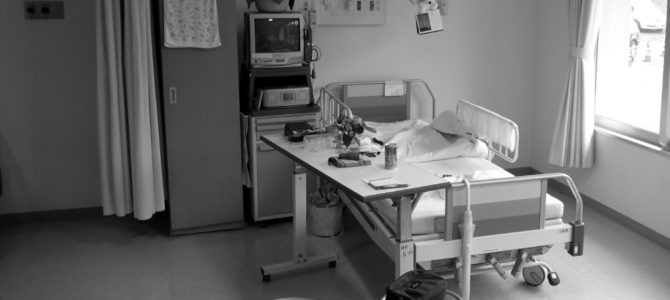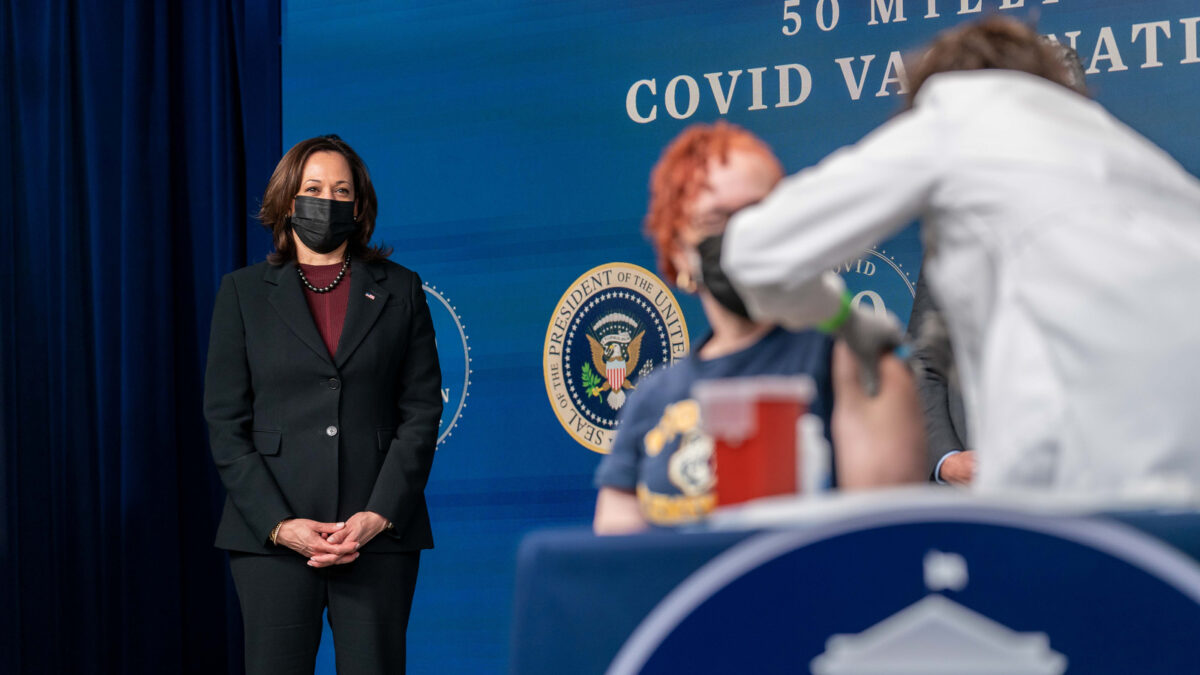
Everyone who knew Elizabeth Valerie Reiter describes her as someone who was kind, thoughtful, and always positive. Her husband, Steve, agrees but he also likes to add that Elizabeth was “super cute.” On April 29, Elizabeth was rushed to a local hospital after feeling sick for about seven weeks. As she was carried on to the ambulance, she waved to Steve and their two boys, telling them that she hoped to see them again soon. Steve and the two boys never imagined that was the last time they would see Elizabeth alive.
Steve and Elizabeth first met through online dating. After about a year of courtship, the couple got married on October 13, 2001. In 2004, when they found out that Elizabeth was pregnant with their first son, they also learned that Elizabeth had several health issues, including Lupus, which made Elizabeth’s pregnancy exceedingly difficult. Elizabeth experienced hypertension and had to visit the ER many times throughout the pregnancy. Matthew, their first son, was born nine weeks premature because Elizabeth had a placenta abruption, a serious pregnancy complication in which the placenta detaches from the uterus.
The couple thought they wouldn’t have any more children. But two years later, God blessed them with another son who they named Caleb. Elizabeth’s Lupus was under control at this time. The young family of four seemed to be all set to live a normal and healthy life. Then in 2014, Elizabeth became gravely ill. She was rushed to the University of Colorado Hospital where she was diagnosed with Pulmonary Hypertension, a serious condition that affects arteries in the lungs and the heart. The lead doctor told Steve that Elizabeth might not live to see their younger son Caleb graduate from high school. After the initial shock, Steve vowed that he would live every day to the fullest, love his wife to the best of his ability and make the most out of their time together with no regrets.
The Difference Family Makes
During Elizabeth’s hospital stay, Steve, and Elizabeth’s mom took turns looking after her. They made sure a family member was always by Elizabeth’s side. They talked to her, read to her, massaged her head and feet to make her feel comfortable, and conversed with her medical team to ensure she received the best treatment. Between the excellent medical care and her family’s love and support, Elizabeth miraculously recovered.
On March 12, 2020, Steve flew to Wisconsin to attend a high school basketball tournament. The next day, Elizabeth called. She told Steve that she didn’t feel well. She suspected that she got COVID-19 because she demonstrated some of the symptoms such as having trouble breathing. Steve flew home the next day. On March 16th, Elizabeth got tested for COVID-19. After waiting for two weeks, the result came back negative. Still, Elizabeth’s regular doctor would see her only through telemedicine rather than in person, out of concern for COVID-19.
Steve expressed to me how incredibly distraught he was. Crucial decisions were seemingly wrenched out of his control and placed into the cold distant hands of bureaucrats. The misinformation revolving around COVID-19 was rampant. Everyone was scared — including doctors. Yet, given Elizabeth’s complicated medical history, Steve believed whatever she experienced this time was not something that could be easily diagnosed through telemedicine. She needed him. She needed her family.
The family tried to cope with Colorado Gov. Jared Polis’ “shelter-at-home” order the best they could. When Elizabeth felt better, she would join the rest of the family to play games. Steve told me those few weeks during the lockdown was one of the best memories in his life.
Unfortunately, Elizabeth’s condition worsened. Two days after Gov. Polis announced the state would let its stay-at-home order expire, Steve called 911 in the early morning of April 29th. Because of the hospital’s COVID-19 protocol, Steve wasn’t allowed to ride in the ambulance with Elizabeth to the hospital, so the family had to say goodbye to Elizabeth at the front door. Elizabeth said to her husband and their two boys she would hopefully see them again soon.
The News We Won’t Ever Be Ready For
That day, both Steve and Elizabeth were tested for COVID-19. This time, the test results came back quickly — both were negative. Unfortunately, that was the only good news on that day. Later that same day, doctors at the University of Colorado Hospital diagnosed Elizabeth with double pneumonia and a blood infection. Steve wanted to visit Elizabeth at the hospital, but the hospital insisted no family visit was allowed.
Steve and the kids could only stay connected with Elizabeth through Facetime and phone calls. Elizabeth remained positive and hopeful, telling Steve and the kids that she wasn’t scared. Although she admitted to Steve privately that she felt lonely and yearned to see her family, she didn’t want to trouble the hospital staff to make an exception for her. That’s just the kind of person she was — being considerate and always following the rules.
Steve, on the other hand, tried to pull all the strings he could think of. He called authorities of the hospital as well as the head nurse on the floor where Elizabeth stayed, begging them to let him see his wife in person. The answer from the hospital, however, was always “No.”
On the morning of May 9, Steve got a call early in the morning from the hospital and was told that they discovered that one of Elizabeth’s lungs was bleeding, so they had to transfer her to an Intensive Care Unit. Once again Steve asked if he could see his wife and once again, his request was denied. Then Elizabeth’s condition seemed to improve enough that she was moved out of ICU on May 15 to another room.
On May 19, the family had a wonderful conversation over Facetime. Steve said Elizabeth was in good spirits and looked happy. The hospital informed the family that they might let her go home in a day or two. During their Facetime conversation, the family made plans on what to cook for dinner and what snacks they should get ready to welcome Elizabeth home. The Facetime lasted more than 8 minutes before they said goodbye to one other.
About 40 minutes later, Steve got a call from the hospital — Elizabeth went into cardiac arrest. He hopped into his car and raced to the hospital, 90 minutes away from their home. About 20 minutes into his drive, Steve got an update — the hospital was still trying to save Elizabeth. Another 20 minutes later, Steve got the news he wished he would never have to hear — Elizabeth passed away. She was only 40 years old.
Never Alone
Steve said when he walked into the hospital, he noticed that about half of the doctors, nurses, and janitors didn’t wear any masks. When he went into his wife’s room to say goodbye, no one asked him to wear a mask. I could feel Steve’s frustration when he asked, “If the hospital prevented us from visiting Elizabeth because they were worried about COVID-19 being highly contagious, why didn’t everyone wear a mask at the hospital?”
Steve continued, “Do you know loneliness is just as lethal as smoking 15 cigarettes per day?” He was convinced that if he was allowed to visit Elizabeth, looking after her and comforting her as he did back in 2014, Elizabeth would have lived. “Elizabeth was much sicker in 2014. But she wasn’t alone. She had family with her all the time back then. She got better in the end.” Steve went on, “my wife shouldn’t have to die alone.”
Steve told me that telling the two boys that they just lost their mother was the most difficult thing he had to say to anyone. He noticed his older son Matthew was very quiet. After a while, Steve asked Matthew if he was OK. Matthew answered: “Part of me is sad. But part of me is angry. The last three weeks of my mom’s life was stolen from me.”
Sadly, what happened to Steve’s family was a common experience many American families shared during the COVID-19 lockdown. Too many Americans died alone and too many families didn’t get to say goodbye to their loved ones because of arbitrary rules that are often more fear-based than science-based. Government officials and the healthcare community also lost credibility when they either encouraged or actively participated in mass protests in recent weeks while forbidding ordinary Americans to visit their loved ones at health facilities or even organize a normal funeral.
Authority figures in this country need to do some soul searching. It’s time they have an honest assessment of their policies and guidelines and reevaluate whether some of their policies and guideline were either unnecessary or simply too cruel.
To honor Elizabeth, Steve founded a non-profit organization called the NEVER Alone Project. His goal is to advocate that a patient has the right to have one screened visit per day, even during a pandemic. I hope that the NEVER Alone Project not only succeeds in Colorado but also succeeds in the rest of the country. For if there’s one thing we should all be able to agree on, it’s that no American should have to die alone.









